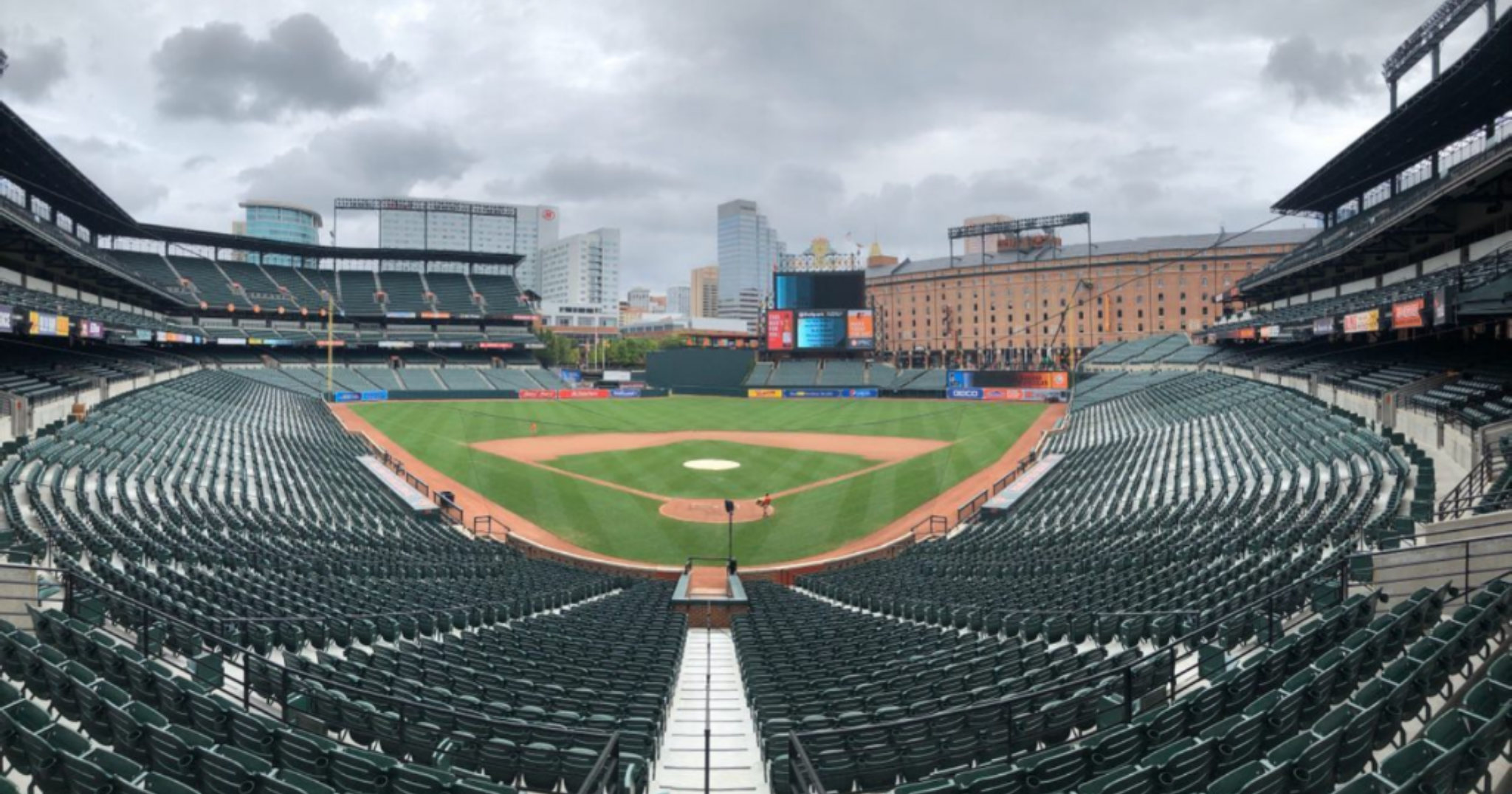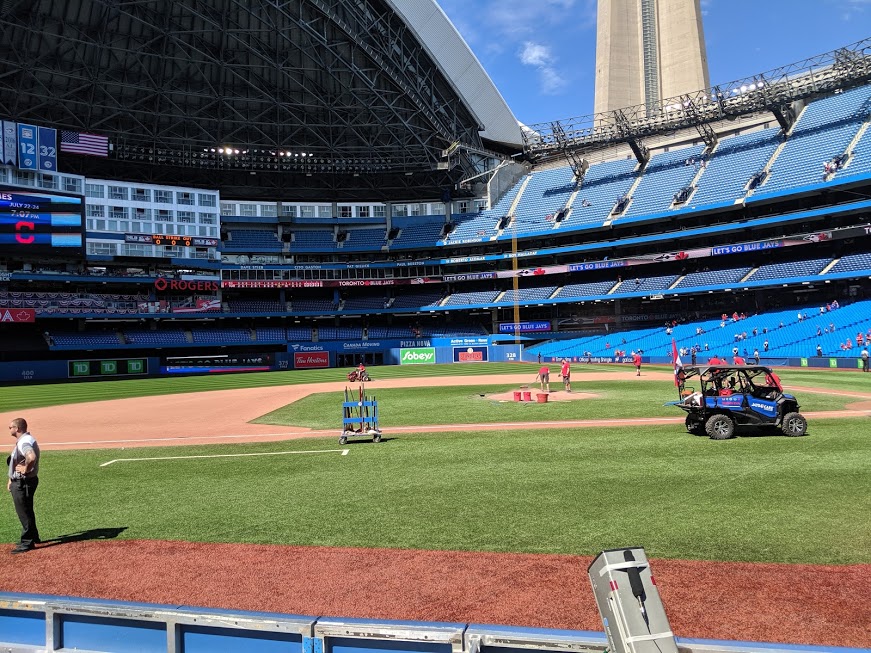Major League Baseball and the MLB Players Association, also known as MLBPA, continued to have discussions about resuming play in 2020. MLB’s latest proposal to the MLBPA has a shockingly low amount of games that would be played.
According to ESPN’s Karl Ravech, MLB’s proposal calls for a 76-game regular season that concludes on September 27th. The playoffs would conclude towards the end of October and would expand from 10 teams to 16 teams. The last time a schedule averaged less than 82 games per MLB team was 1879.
This proposal would eradicate all free-agent compensation for the first time since the free-agent era began in 1976.
MLB players have been reluctant to take pay cuts beyond what they agreed to in March, soon after the Coronavirus pandemic began, which is part of baseball’s again acrimonious labor relations. The onerous negotiations between MLB and MLBPA have jeopardized previous plans to hold Opening Day around the Fourth of July in empty stadiums, providing a distraction to a population that is still emerging from months of quarantine.
The league previously rejected MLBPA’s most recent proposal that featured a 114-game season, with an expanded postseason. When the MLBPA released this proposal, the league was not expected to make a counteroffer. The two sides continue to struggle over player compensation.
"If the players desire to accept this proposal, we need to reach an agreement by Wednesday," Deputy Commissioner Dan Halem wrote in a letter to union negotiator Bruce Meyer that was obtained by The Associated Press. "While we understand that it is a relatively short time frame, we cannot waste any additional days if we are to have sufficient time for players to travel to spring training, conduct COVID-19 testing and education, conduct COVID-19 testing and education, conduct a spring training of an appropriate length, and schedule a 76-game season that ends no later than Sept. 27."
Per Evan Drellich of The Athletic, the MLBPA regarded today’s offer from Major League Baseball to be much worse than their last because “it shifts greater emphasis on risk-sharing in the postseason.” This proposal will allow players to earn 50% of their prorated salaries if there is no postseason and 75% if there is one.
The chance players accept this proposal is very low , but this offer does not have the sliding scale teams embraced last month that would have left MLB’s brightest stars with just a portion of their expected salaries. This proposal is expected to fuel more discussions that could lead to holding Opening Day in mid-July.
The biggest obstacles MLB and the MLBPA are facing is general safety and player compensation. With regards to safety, MLB’s proposal includes a revision to the Operations Manual that states players would have to sign “an acknowledgment of risk” before agreeing to step on a baseball field, per Jorge Castillo of the LA Times. Players feel the league has designed the revision to undermine their right to challenge the league if it fails to provide a secure playing environment.
Major League Baseball fears a second wave of Coronavirus could endanger the playoffs. This would be a huge hit because MLB receives around $787 million in broadcast revenue from the postseason.
Teams estimate MLB’s new proposal would guarantee $1.43 billion in compensation, $955 million in salaries, $393 million if the playoffs are held for a 20% bonus for every player with a Major League contract, $50 million for the regular season postseason pool funded with ticket money and $34 million for forgiven advances.
MLB’s highest-paid players, Mike Trout and Gerrit Cole, who make $36 million a year, would have been guaranteed $5.58 million under MLB’s initial proposal, with the opportunity to make $8 million, and $25.3 million apiece in the union plan. They would be guaranteed $8.7 million each under the offer and would make $12.1 million apiece if the playoffs are completed.
MLB is estimating its annual revenue would decrease from $9.73 billion last year to $2.75 billion this year with a 76-game season. Including prorated shares of signing bonuses, option buyout, termination pay, assignment bonuses, and benefits, MLB says players would receive over 70% of revenue, up from 47% last year. Also, the signing bonuses for amateur players in the upcoming draft is estimated to give players 86%, up from 52%.
Expanding the playoffs would make a big impact on MLB’s teams. Postseason teams doubled to four when the league split into two divisions in 1969, then to eight with the realignment to three divisions plus the addition of the wild card game in 1995, a year later than planned due to the players’ strike. The postseason reached its current format of 10 with the addition of the second wild card and a wild-card round in 2012.
MLBPA proposed expanding the playoffs to 14 teams for 2020 and 2021.
Free-agent compensation has caused multiple fights since the arbitration decision in December 1975 that removed the reserve clause. It led to an eight-day strike during spring training in 1980 and a 50-day strike in 1981. Compensation has been narrowed recently but has still caused many free agents to have fewer bidders and to sign much later, such as pitchers Craig Kimbrel and Dallas Keuchel, who signed in June of 2018.
All players would have the option to opt-out and not play, but only high-risk players would be treated as if they’re injured and would receive full salary and service time.
Major League Baseball and the Players Association have been giving each other proposals for about a month now, but there hasn’t been any progress. The NBA has a set date to return and the NHL has gotten their proposal approved by the NHLPA, but the MLB and MLBPA can’t seem to get any traction on a deal. MLB Commissioner Rob Manfred remains confident the two sides will get a deal done, but things aren’t looking too promising.


